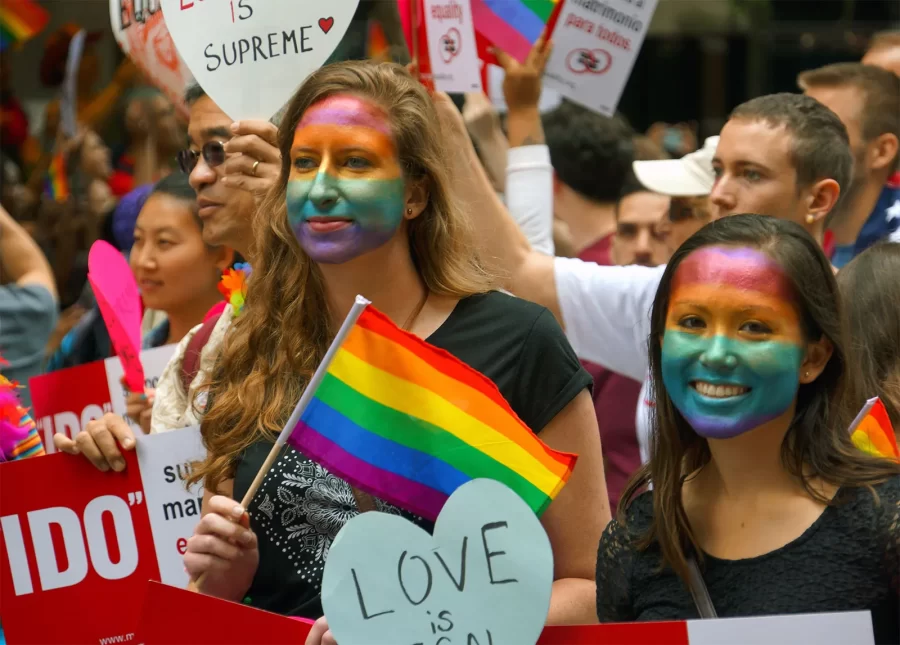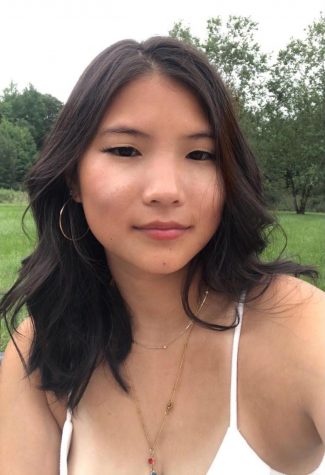We need representation! The importance of AAPI and Pride Month
The intersection of the two months is more important than it seems
Pride month follows AAPI month, both the two months have important commonalities
May 25, 2022
With the month of May coming to an end, it marks the ending of Asian America and Pacific Islander heritage month ending as well, and the coming of June, which is the month dedicated to celebrating LGBTQ+ Pride. Both months are significant times to celebrate the history and achievements of minorities and to educate people about their experiences in America. From poets to congressmen, to RV Students, every voice is important to be heard and have their stories told. Here are some important members who represent both AAPI and LGTBQ+ individuals.
Terisa Siagatonu is a poet and an important member and advocate for LGBTQ+ and Samoan communities. Siagatonu is also a mental health advocate who has used her voice to speak up for those who cannot and has performed everywhere from the UN Conference on Climate change to White House. Her poetry weaves together her diverse political and personal experiences as a call to action. Additionally, she utilizes her position to give back to her community, and one way she does is that she is currently the Project Director for the Pacific Islander Education and Retention project at UCLA which provides free tutoring, mentorship and peer advising to combat the low matriculation rates of Pacific Islander students into higher education. Siagatonu has been a driving force behind raising awareness and providing assistance to issues impacting the lives of Pacific Islanders.
Urook Arshad is a woman who has spent her entire career advocating rights on behalf of LGBTQ+ youths, and especially for Muslims and South Asians. Arshad has raised funds and establish several programs and organizations including the Muslin Youth Leadership Council, the International Yotuh Health and Rights Program, as well as the Muslim Alliance for Sexual and Gener Diversity (MASGD). Each program attempts to address the intersectionality impacts of islamophobia, homophobia and transphobia. Additionally, she has served in the US delegation to the UN commission on the Status of Women in 2015, and in 2017, she secured investments of over one million dollars to aid LGBTQ+ Muslin youth in the global south. Her work has been featured in numerous publications such as The Oprah Magazine and US Today, and she was even invited to speak at the Obama White House’ Pride and Heritage event in 2011. Arshad has been a monumental figure in advancing the rights of LGBTQ+ Muslins and deserves to be recognized for all she has been doing.
Born in 1960, Mark Takano is an Asian American politician who has represented California’s 41st congressional district since 2013 after 20 years of being a classroom teacher. Takano was the first every openly gay man of Asian descent to run in office and in named “LA Pride Person of the Year” in 2013. In his position, he works on advancing local priorities such as improving public education and he strives to protect the rights of every person stating, “I will continue to fight for equality in Congress, as all Americans deserve to be treated equally under the law.”
Finally, Taiwanese-American Ang Lee holds the distinction of becoming the first non-white director to win an Academy Award for directing, and producing Oscar-winning films in both Chinese and English. Lee has won Academy Awards Best Foreign Language Film for Crouching Tiger, Hidden Dragon (2000), as well as best director for Brokeback Mountain (2015) and Life of Pie (2012) and been nominated for numerous other awards. Today, many consider Lee to be one of his generation’s most successful and influential directors and has caused many to look up to him as an Asian America who made it in a notoriously non-poc dominated field.
Senior Kennessy Baban shared her experience growing up Asian in a time devoid of Asian representation.
“While growing up, I had always felt out of place because where I lived, the majority of people were white,” she said. “Looking back now on when I was a kid watching Disney princesses and playing with Barbie Dolls, it always stuck with me that I could never find a princess who looked like me or a doll either. I remember going to the store to buy dolls to play with but I could only ever find dolls that had fair skin, blonde or brunette hair and brightly colored eyes. But, when I saw the animated movie Mulan, it made me feel overjoyed that there is somewhat representation of Asians in the media. And as time went on more shows and movies began to portray Asians such as, ‘Avatar the Last Airbender,’ ‘My Neighbor Totoro,’ ‘Ponyo,’ ‘Lilo and Stitch’ or ‘Big Hero 6.’ These shows have a significant impact on the Asian youth of today because now they have role models who have our features to look up to and feel confident in having.”
“I think this month helps a lot of people connect and be proud of their culture. Especially if it isn’t appreciated in their daily lives,” said junior Elaine Liu. “For me, I sometimes lose sight of what it means to me to identify as Asian and I have to remind myself of my background as a Chinese American that I have so much to share and be proud of for being born who I was. I find it really important to see people in the media to represent us, especially those in the LGBTQ+ because it can be a struggle to resonate or relate to someone and having that individual out there that’s well known can really be helpful to us young individuals.”
The months of May and June serve as a time to not only recognize the past achievements and influences of the AAPI and LGBTQ+ community, but also to allow people to find themselves in their media. Having a month dedicated to each group helps those who feel underrepresented find out about the media where they are represented and helps grow confidence and self esteem and not be ashamed about having different physical features or sexualities.








